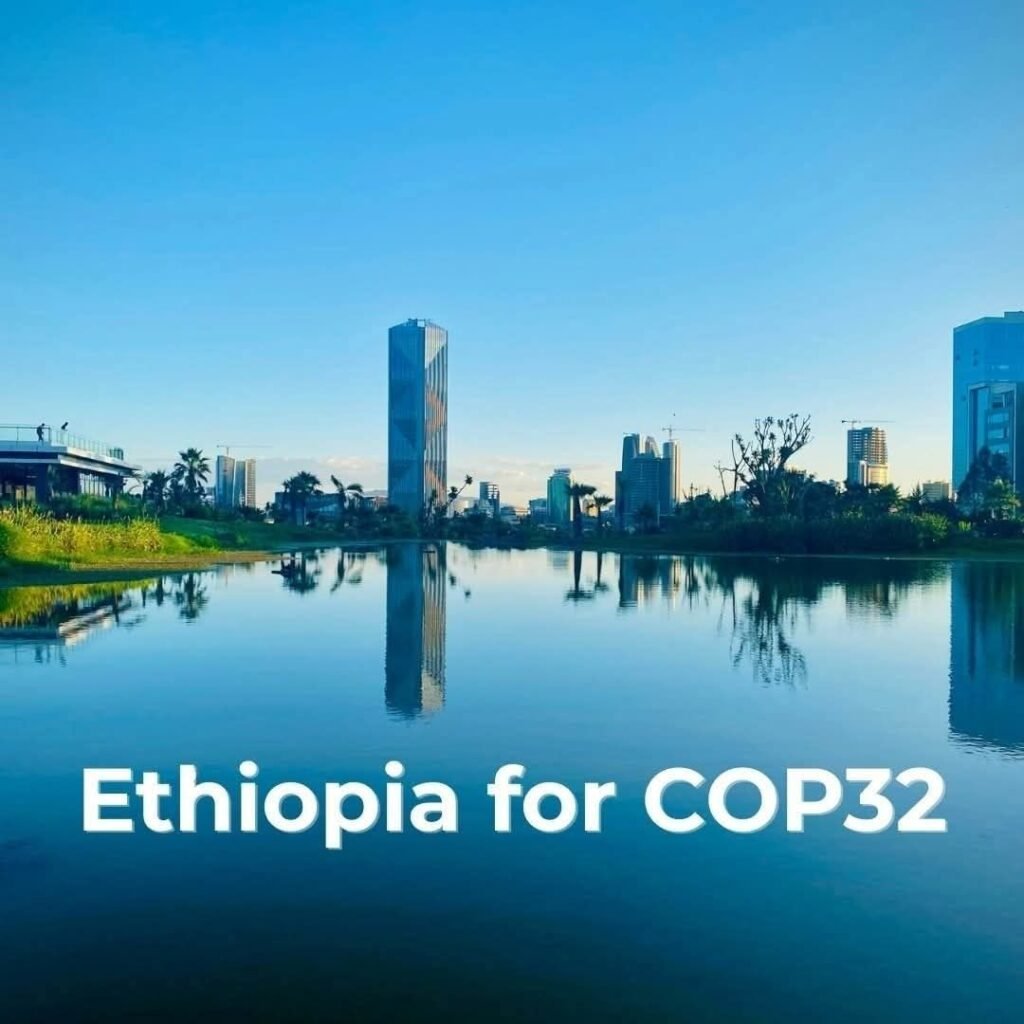The 30th United Nations Climate Change Conference (COP 30) opened in Belem under the theme “Collective Global Effort.” The Leaders’ Meeting, held from November 6 to 7, brought together 57 heads of state and government. The leaders’ segment is followed by two weeks of formal negotiations, continuing until November 21.
Presenting Ethiopia’s national statement, Ambassador Leulseged Abebe, Ethiopia’s Ambassador to Brazil, outlined three imperatives for effective climate action.
First, home-grown climate action, Ethiopia encouraged all developing countries to center their efforts on community mobilization and the use of domestic resources.
Second, the urgent need to deliver the means of implementation, particularly by developed countries, by honoring the Paris Agreement climate finance commitments, which include mobilizing USD 1.3 trillion annually to close the financing gap.
Third, the need to triple renewable energy investment by increasing Africa’s share of the global USD 60 billion energy investment from just 2 percent to 20 percent by 2030.
Ethiopia also underscored the urgency of ensuring fair, sustainable, and just supply chains for critical minerals, which are essential for developing zero- and low-emission energy technologies.
In Belem, Ethiopia successfully advanced its bid to host COP 32 in Addis Ababa in 2027, receiving unanimous endorsement from the African Group of Negotiators (AGN). Africa’s COP will be presented to the broader UNFCCC membership, with further engagements to follow with the Secretariat.
Ethiopia’s delegation also promoted the outcomes of the Second African Climate Summit, as reflected in the Addis Ababa Declaration. In this regard, Ethiopia called for global support for the decision to establish the African Climate Facility (ACF) and the Africa Climate Innovation Compact (ACIC), and to mobilize USD 50 billion annually in catalytic finance to drive climate innovation and scale up local solutions across Africa.
Ethiopia’s commitment to ambitious climate action is reflected in its active participation in negotiation rooms, side events, and pavilions in Belem. The Ethiopian Pavilion showcases a diverse range of initiatives spanning forestry, green energy, smart agriculture, biodiversity, transport, industry, and environmental protection, and hosts dialogues engaging climate stakeholders from around the world.

